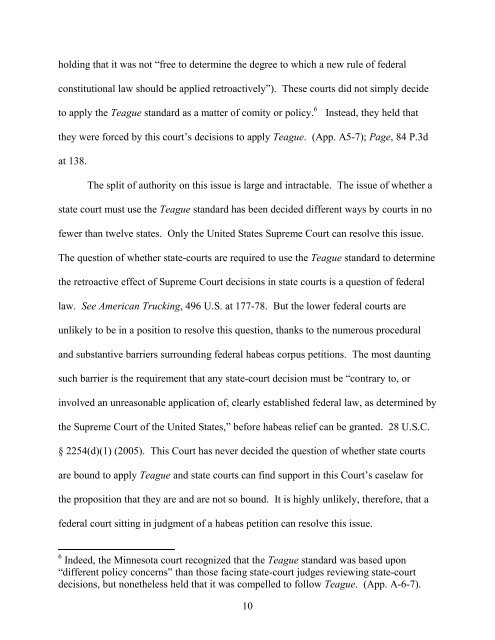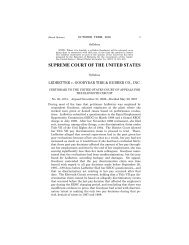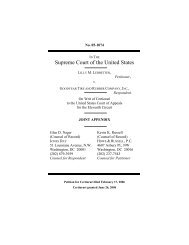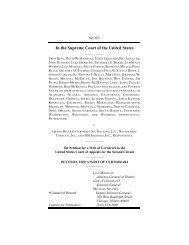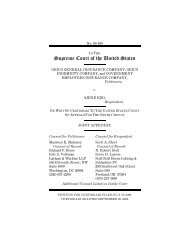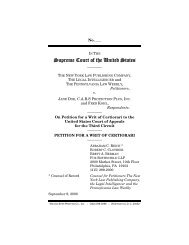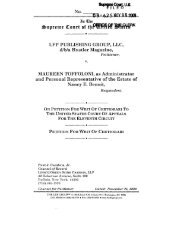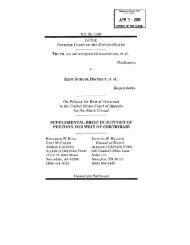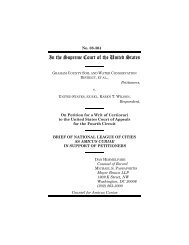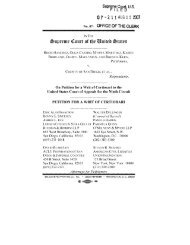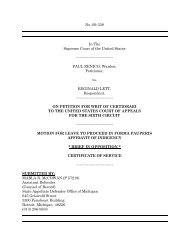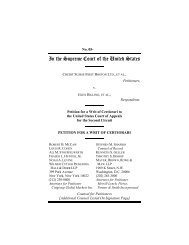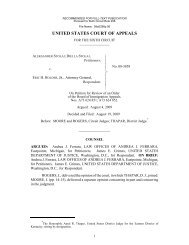PETITION FOR A WRIT OF CERTIORARI - SCOTUSblog
PETITION FOR A WRIT OF CERTIORARI - SCOTUSblog
PETITION FOR A WRIT OF CERTIORARI - SCOTUSblog
You also want an ePaper? Increase the reach of your titles
YUMPU automatically turns print PDFs into web optimized ePapers that Google loves.
holding that it was not “free to determine the degree to which a new rule of federal<br />
constitutional law should be applied retroactively”). These courts did not simply decide<br />
to apply the Teague standard as a matter of comity or policy. 6<br />
Instead, they held that<br />
they were forced by this court’s decisions to apply Teague. (App. A5-7); Page, 84 P.3d<br />
at 138.<br />
The split of authority on this issue is large and intractable. The issue of whether a<br />
state court must use the Teague standard has been decided different ways by courts in no<br />
fewer than twelve states. Only the United States Supreme Court can resolve this issue.<br />
The question of whether state-courts are required to use the Teague standard to determine<br />
the retroactive effect of Supreme Court decisions in state courts is a question of federal<br />
law. See American Trucking, 496 U.S. at 177-78. But the lower federal courts are<br />
unlikely to be in a position to resolve this question, thanks to the numerous procedural<br />
and substantive barriers surrounding federal habeas corpus petitions. The most daunting<br />
such barrier is the requirement that any state-court decision must be “contrary to, or<br />
involved an unreasonable application of, clearly established federal law, as determined by<br />
the Supreme Court of the United States,” before habeas relief can be granted. 28 U.S.C.<br />
§ 2254(d)(1) (2005). This Court has never decided the question of whether state courts<br />
are bound to apply Teague and state courts can find support in this Court’s caselaw for<br />
the proposition that they are and are not so bound. It is highly unlikely, therefore, that a<br />
federal court sitting in judgment of a habeas petition can resolve this issue.<br />
6 Indeed, the Minnesota court recognized that the Teague standard was based upon<br />
“different policy concerns” than those facing state-court judges reviewing state-court<br />
decisions, but nonetheless held that it was compelled to follow Teague. (App. A-6-7).<br />
10


